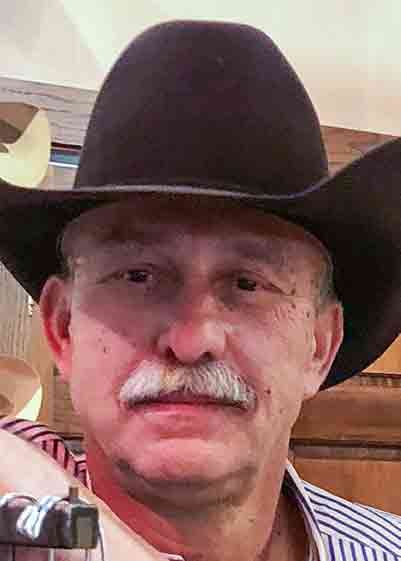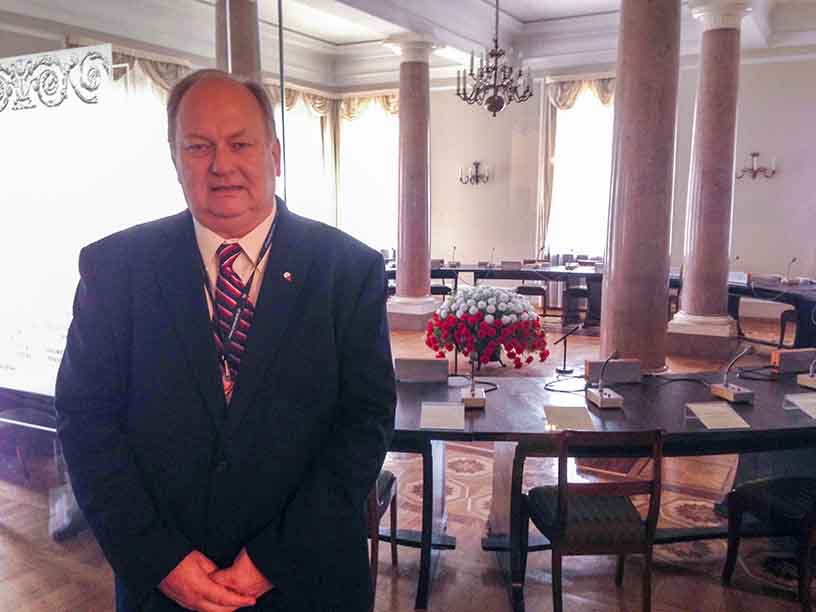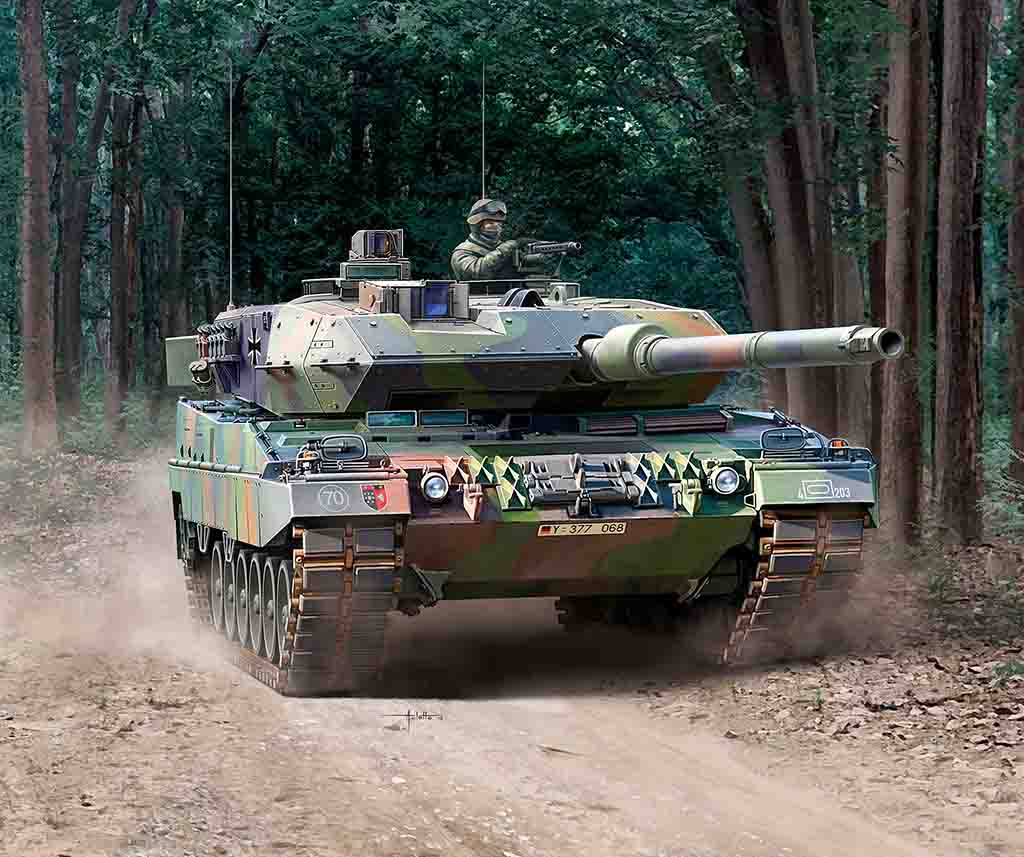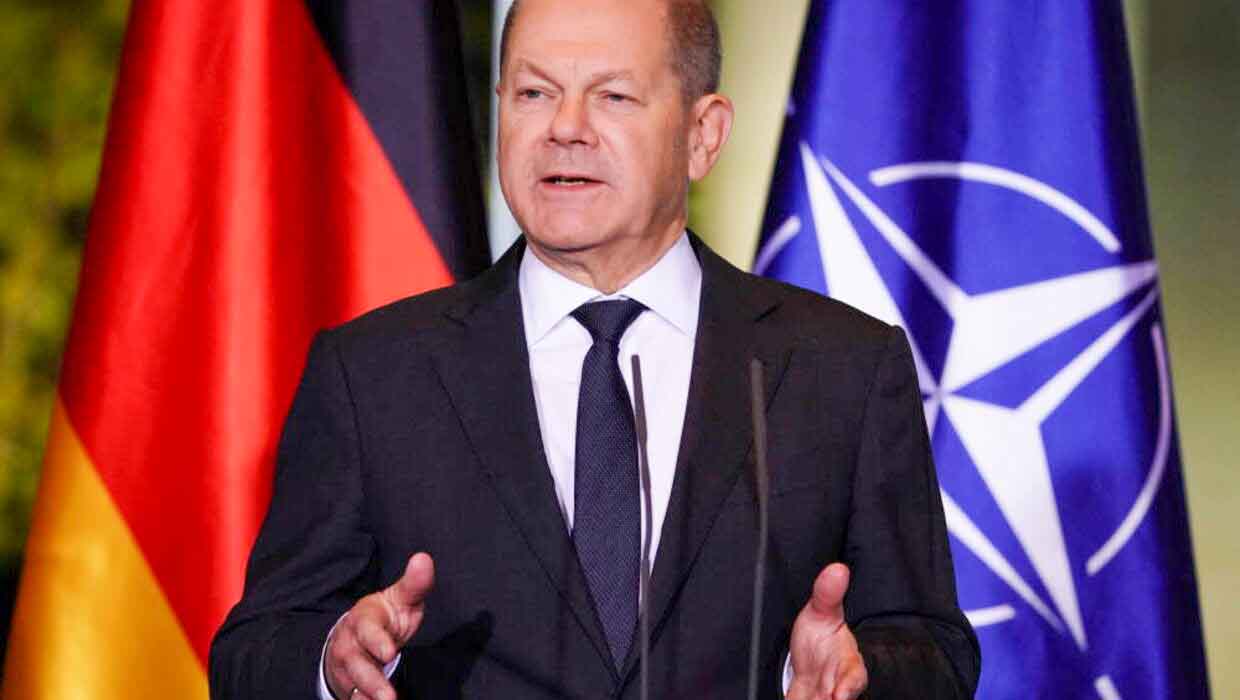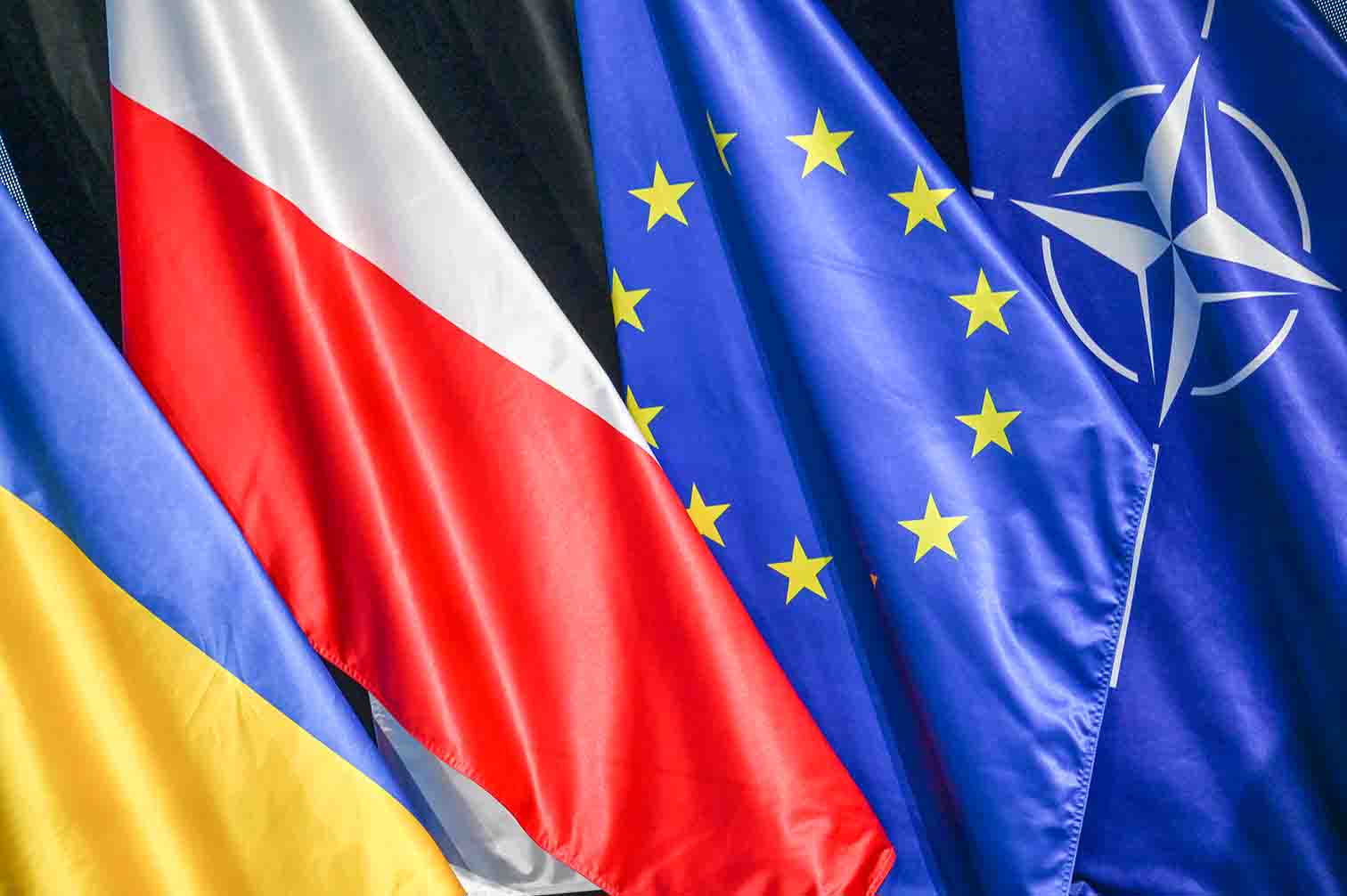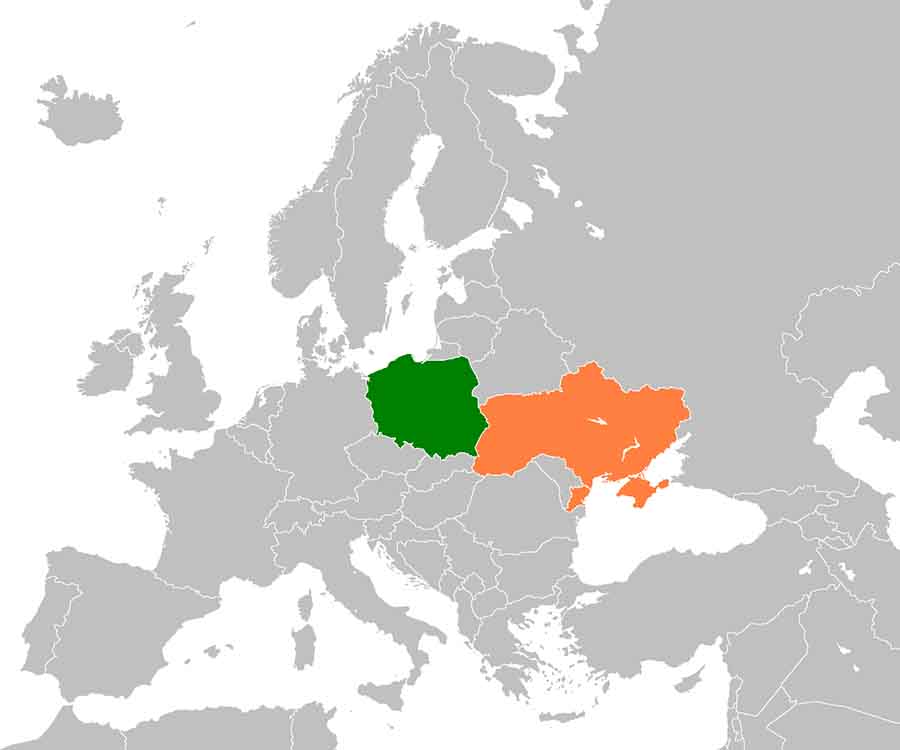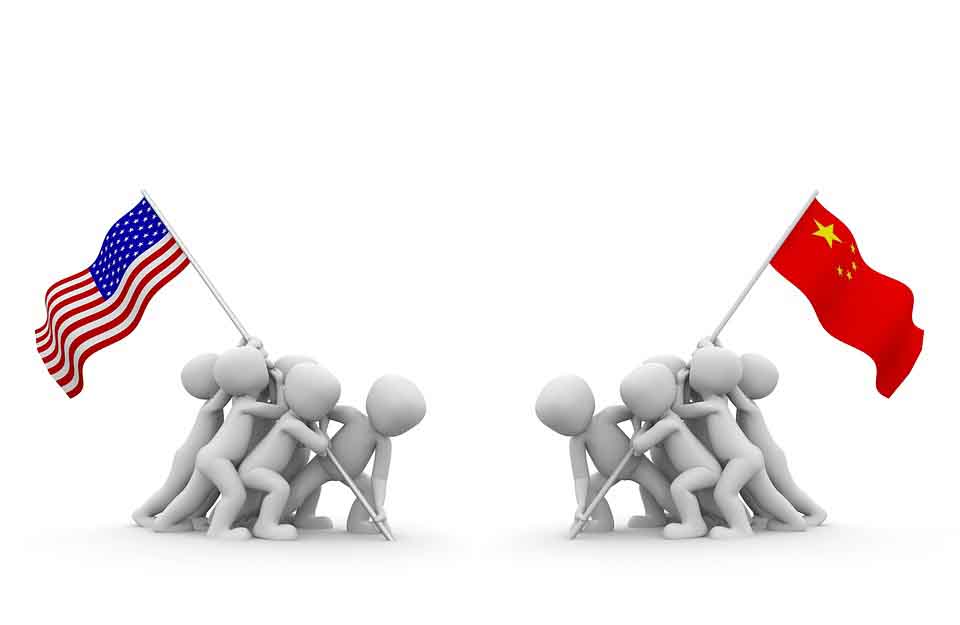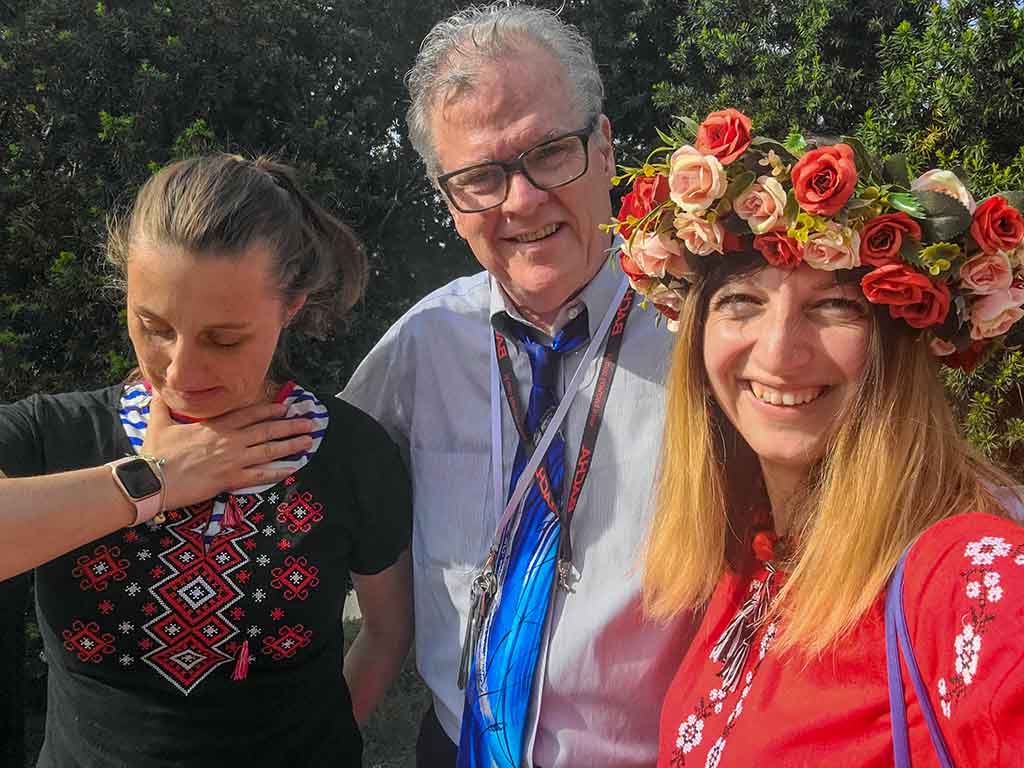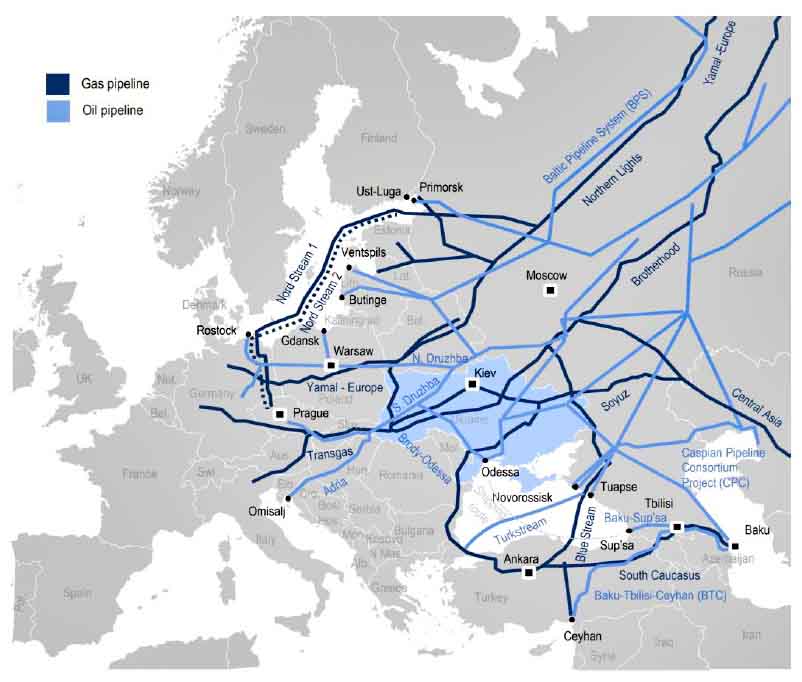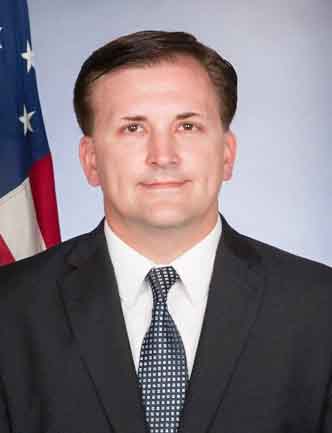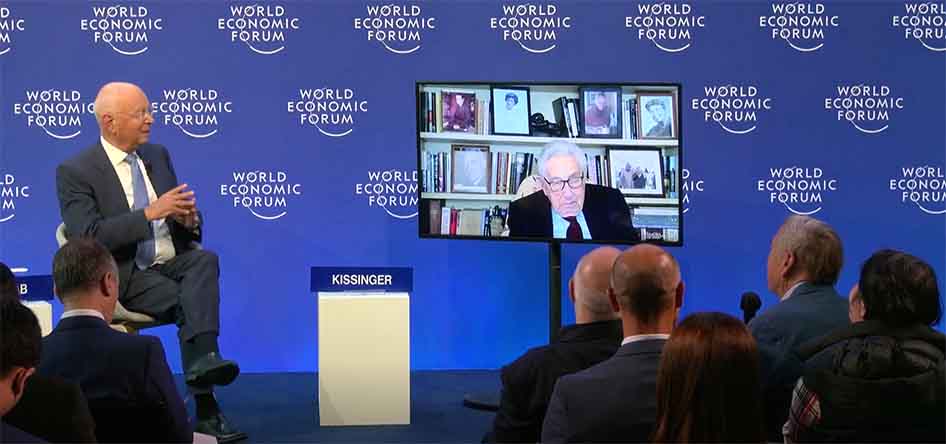The balance of power in the world is changing. The price of a barrel of oil exceeds USD 120. Inflation in many countries has gone beyond the magical 10%, the high prices are starting to bother many households. Central and Eastern Europe is also changing before our eyes. There is a devastating war going on in Eastern Europe. Federation ideas are being discussed in Poland and Ukraine. Similar activities are taking place between Romania and Moldova. There was a timid debate on the Internet about the upcoming NATO summit, in which there were voices that the situation on NATO's eastern flank was highly unsatisfactory. Analysts say there is a lack of heavy armored divisions that, realistically, are the only ones that could stop the imperial army of Russia.

Location of Kaliningrad (Source: Wikipedia)
Poland has become a front-line country, and the immediate threats are the areas of Kaliningrad and Belarus. Russian troops are stationed in both of these areas, and Warsaw is 400 kilometers from the place where these troops are stationed. Intelligence data also show that the largest Polish cities are within the range of missiles stationed in the Kaliningrad area. Lithuania, Latvia and Estonia are also at risk, and the recent actions by Sweden and Finland clearly show that the period of relative peace in Europe is ending.
Real Aid to Ukraine
There is a war in Ukraine. All analysts say that it will change the image of Europe. According to prof. Tomasz Grzegorz Grosse “We are witnessing a process in which the countries of Central Europe stop orienting themselves towards the West or the East and start looking at each other. Due to the deepening troubles of Western Europe, the countries of the "new union" are more and more beyond the control of Berlin and Paris. The policy makers of Germany and France did not explicitly reject the idea of a Europe from Vladivostok to Lisbon and the concept of the strategic Russian-German partnership. Rather, the policy tends to wait out the conflict and put pressure on Ukraine to reach a compromise that would allow it to do business with Moscow again. President Macron's attempts to negotiate a possible peace between Russia and Ukraine are ridiculed both in Russia and in other countries which are closely monitoring the ongoing processes of support for Russia by the German-French elite. The actions of France and Germany, however, have a completely different meaning in a declarative sense versus real actions.
The Wall Street Journal examined the matter in a recent article: "Who's Really Sending Aid to Ukraine?" The article shows that the countries that help Ukraine militarily are the United States, Poland, Great Britain, Canada, Norway, Estonia and Latvia. Only then do Germany, France and Italy show up. These studies clearly show that the latter 3 countries operate on separate levels: declarative and real. The NATO summit could expose the divergences between the Atlantic allies on NATO's eastern flank. We have been watching shows of the Atlantic leadership at the American base Ramstein in Germany, where the third meeting gathered defense ministers from as many as 50 countries.
American Dilemmas
Kissinger or Mearsheimer's post-Cold War thinking does not stand up to criticism with the savagery and bestiality of the Imperial Russian army. Henry Kissinger at the meeting in Davos stated that: "the optimal solution would be if the borders returned to the status quo ante", that is, to the state before February 24. It seems, however, that the present US administration does not intend to give a broad margin to imperialist Russia.
Since February 24, from the first day of Russia's invasion of Ukraine, the Americans have already allocated considerable sums to military aid for Ukraine, and the stream of money after the meetings at the Ramstein base continues to grow. However, a strong opposition to President Biden's line is noticeable, and the upcoming elections and the aforementioned inflation may change this geopolitical vision of minimizing the imperial threat to Russia.
The Threat to NATO's Eastern Flank
Central and Eastern European countries want to strengthen NATO's eastern flank, and this was strongly articulated at the NATO summit in Madrid on June 29-30. Calls to strengthen NATO's eastern flank were included in the final declaration of the Bucharest Nine summit, which was recently held in the Romanian capital. The situation is only aggravated by the so-called conflict on the Suwałki Gap between Lithuania and Russia. However, the analyses and forecasts of the course of events, especially after the NATO summit in Madrid, are interesting. The American media emphasize that a new strategic concept was adopted there, which unequivocally breaks with the idea of partnership with Russia. In the American expert debate, there are more and more voices that the US must deal with Russia first and China only second.
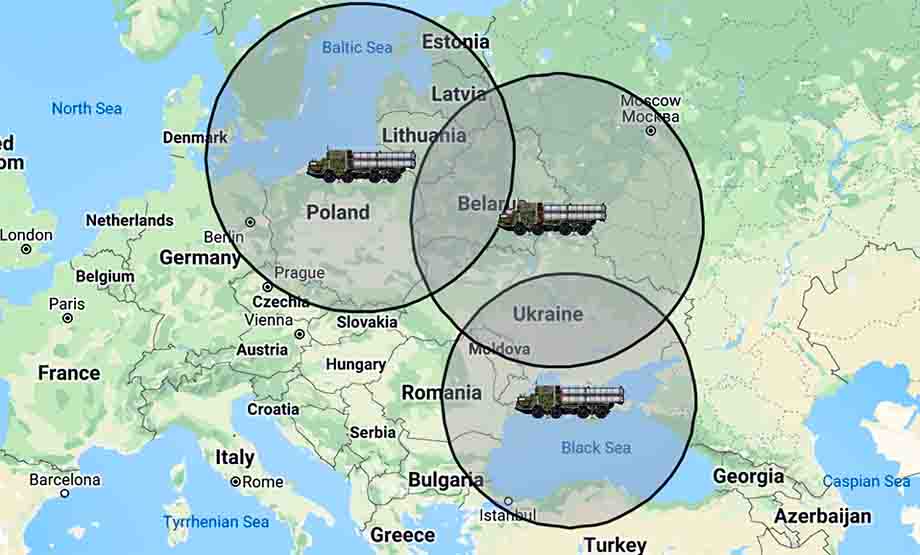
The range of Russian supersonic missiles (Source: Military Watch Magazine)
NATO will significantly develop its rapid reaction forces. They are to count over 300 thousand. soldiers. US President Joe Biden announced in Madrid that the permanent command of the 5th US Army Corps will be established in Poland. From the autumn of 2020, a forward command post of this unit has been operating in Poznań, which coordinates the activities of the US ground forces in Europe. Sweden and Finland have also joined NATO.
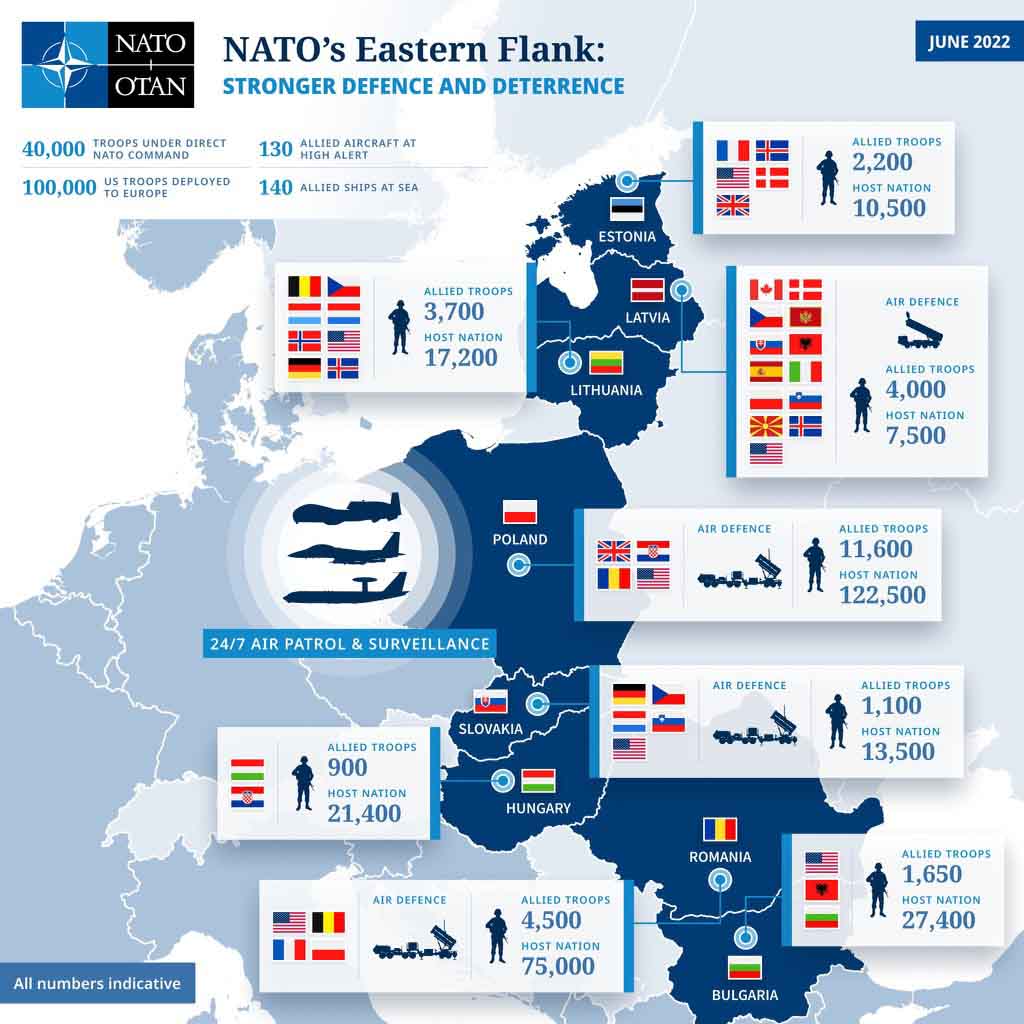
NATO's Eastern Flank after the Madrid Summit (Source: NATO)
The truth, however, lies in the brutal facts. In Europe, there are physically no heavy armored divisions that could stop the next Russian "special operation". Over the past 30 years, European countries have been liquidating ground forces, and the largest French army in Europe has only 200 such tanks. In fact, only the Americans count in the game to secure the eastern flank. As the President of the Republic of Poland Andrzej Duda told the Bild magazine: "Poland has provided Ukraine with almost $2 billion in weapons, including over 240 T-72 tanks and about 100 armored personnel carriers." According to the Onet portal: "Among the weapons that Poland donated to Ukraine, there are about 250 T-72 tanks, 2S1 Goździk self-propelled howitzers and Grad rocket launchers." Polish Thunderbolts (pol. Piorun) are also greatly appreciated. Poland donated air-to-air missiles for MIG-29 and Su-27 aircraft, as well as Warmate drones and a large amount of ammunition. It is important to replenish and replace this equipment with more modern equipment from the West as soon as possible.
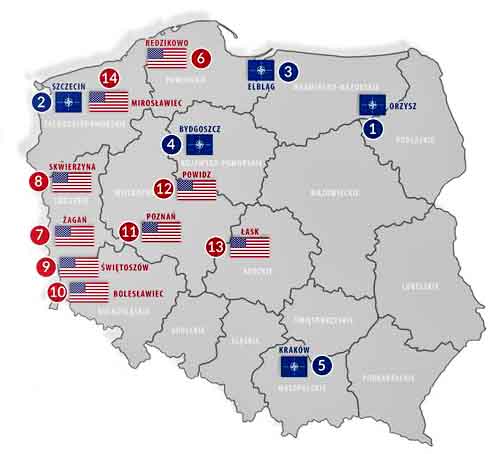
American and NATO military in Poland (Source: US Embassy)
The Pentagon is analyzing the possibilities of faster delivery of Abrams tanks to Poland. Poland purchased 250 M1A2 Abrams SEPv3 tanks with a package of accompanying vehicles: 26 M88A2 Hercules technical support vehicles and 17 M1074 Joint Assault Bridges. Deliveries of this equipment in the final configuration are expected to start in 2025 and end in 2026, while talks about accelerating the start of deliveries are ongoing. According to information from the US Congress, this is an option. The second is to hand over some existing tanks to Poland. The Lend-Lease act itself was signed only in the first half of May (it gives new powers when it comes to lending equipment from the US army not only to Ukraine, but also to the NATO allies).
Lobbying Activities
In order to properly secure Polish interests regarding NATO's eastern flank and to ensure effective influence over the American administration in order to preserve the sovereignty of Central and Eastern Europe, including Poland, measures should be taken as soon as possible to activate the Polish diaspora in the United States.
The Polish American community should be encouraged to engage once again in lobbying, ensuring the security and sovereignty of the nations of Central and Eastern Europe and a place for the American presence in Europe. It is necessary to organize pressure on the administration in Washington in order to secure the supply of equipment and training of the Ukrainian army and the armies of the countries in this area, and to support Ukraine economically.
Contrary to the popular opinion of some Warsaw politicians and journalists, the Polish diaspora in America has enormous potential significantly influencing the administration in Washington.
Recent research by prof. Dominik Stercula clearly indicate a large group of the Polish intelligentsia, which, with the help of Polish leadership-building specialists, could significantly help the politics of Central and Eastern European countries in influencing the administration in Washington. The Polish community in America has outstanding specialists who could conduct training for the leaders of pro-Polish pressure groups. We mean professionals: doctors, lawyers, academics, people of culture, and journalists.
Having Polish lobbying in the USA is a powerful tool of influencing political, economic and military affairs. It is worth considering the issue of pro-Polish lobbying more widely and extending it to other strategic countries for Poland, including Germany, France, Italy, Canada and Great Britain. The situation in Canada and the Ukrainian diaspora shows in fact what influence the diaspora can have on the policy of a given state. We have large groups of the Polish diaspora in every country of Western Europe.
We would like to remind you that, since 1989, no measures have been taken at the level of the Polish government to rebuild such pro-Polish lobbying in the USA. If we want to be a country that counts in world politics, we should take such a step as soon as possible. We have serious contacts, know-how, and – most importantly – we know people in the American academic community who could train such pressure groups. We will certainly come back to this topic, which is grounded in the Polish raison d'état. We are waiting for a response to this signal that we deliberately send.
Translation from Polish by Andrew Woźniewicz.




